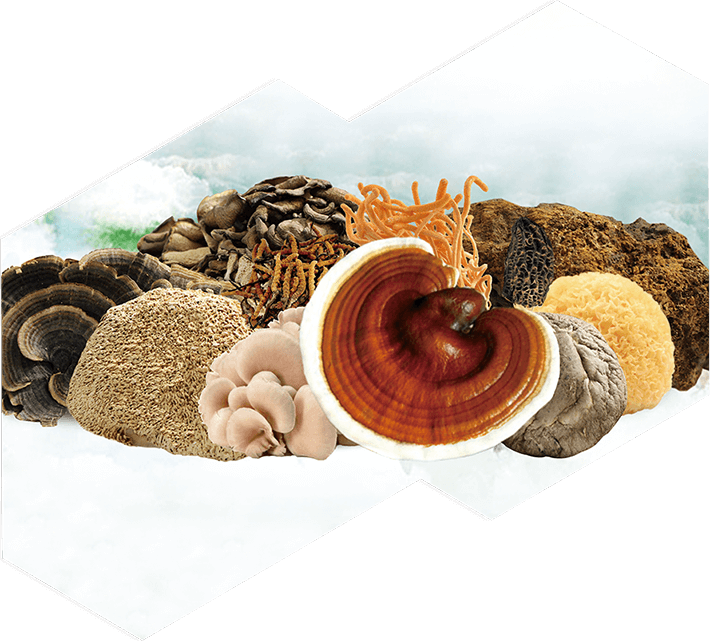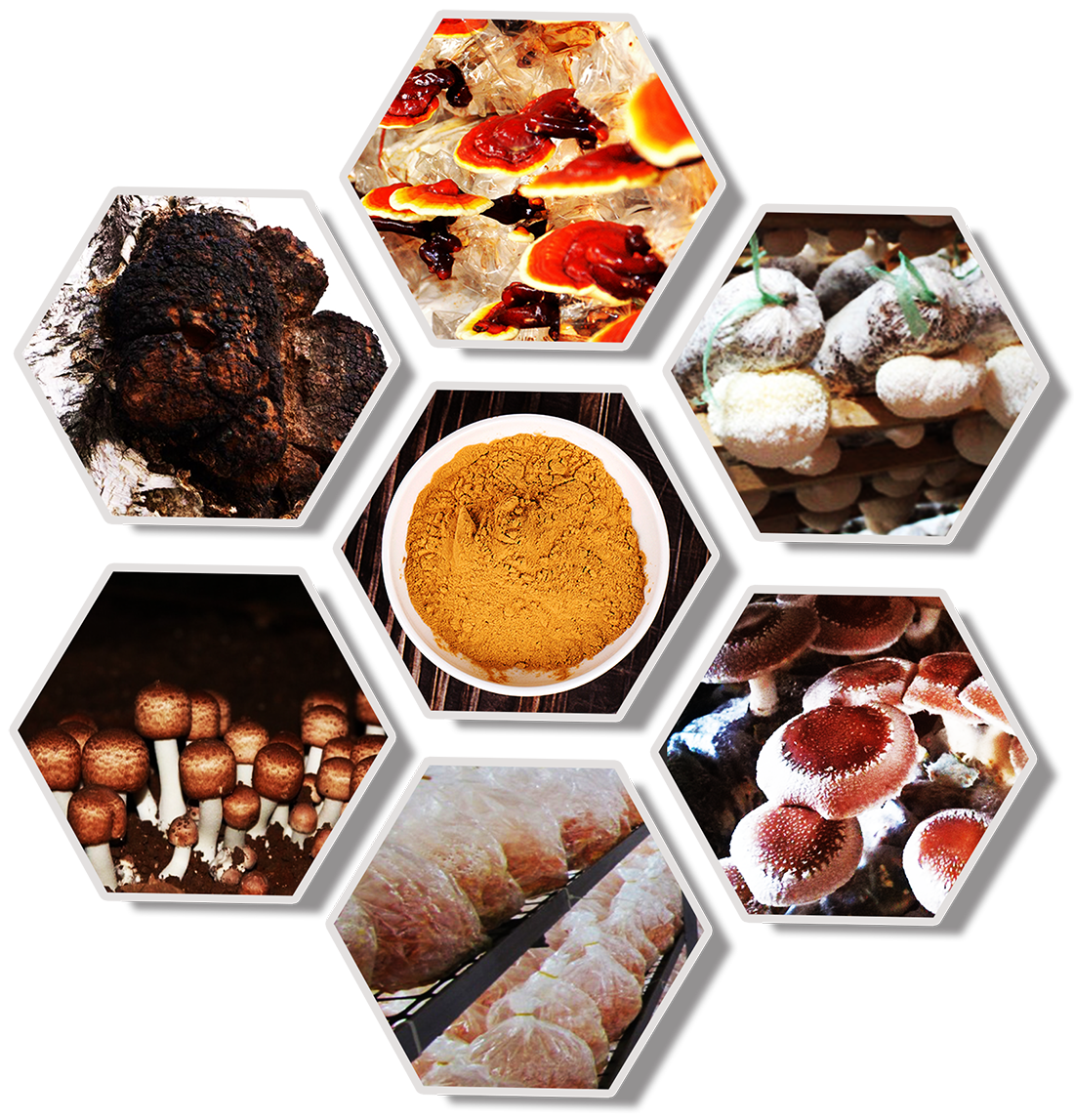What is Medicinal Mushroom
Medicinal mushrooms can be defined as macroscopic fungi that are used in the form of extracts or powder for prevention, alleviation, or healing of multiple diseases, and/or balancing a healthy diet. Ganoderma Lucidum (Reishi), Inonotus obliquus (Chaga), Grifola Frondosa (Maitake), Cordyceps sinensis, Hericium erinaceus (Lion’s Mane) and Coriolus versicolor (Turkey tail) are all examples of medicinal mushrooms.
Mushrooms have been recognized for their nutritional value and medicinal properties for thousands of years. Extensive clinical trials have been done all over the world, especially in Asia and Europe where they have been used in traditional medicine for centuries. They have found numerous polysaccharides and polysaccharide-protein complexes in medicinal mushrooms that appear to enhance immune response.


The most interesting type of polysaccharide is beta-glucan. Beta-glucans appear to aid the immune system in a manner that studies suggest it could have potential to be an anticancer agent. When beta-glucans from Reishi mushrooms were used in combination with radiation on mice with lung cancer, there was significant inhibition of tumor metastasis (growth of the cancer mass). It appears a major factor is how medicinal mushrooms stimulate and modulate the immune response. In fact, this has spurred a promising area of cancer research, called cancer fungotherapy. Many mushrooms have shown the ability to inhibit the enzyme aromatase that produces estrogen and thus may protect against breast and other hormone-related cancers. Even the common white button mushroom has some aromatase inhibiting abilities.
Some Potential Benefits of Mushrooms and Fungi:
• Immune modulating
• Prevent tumor growth
• Antioxidant
• Cardiovascular health
• Lower cholesterol
• Antiviral
• Antibacterial
• Antifungal
• Antiparasitic
• Detoxification
• Liver protection





